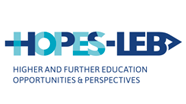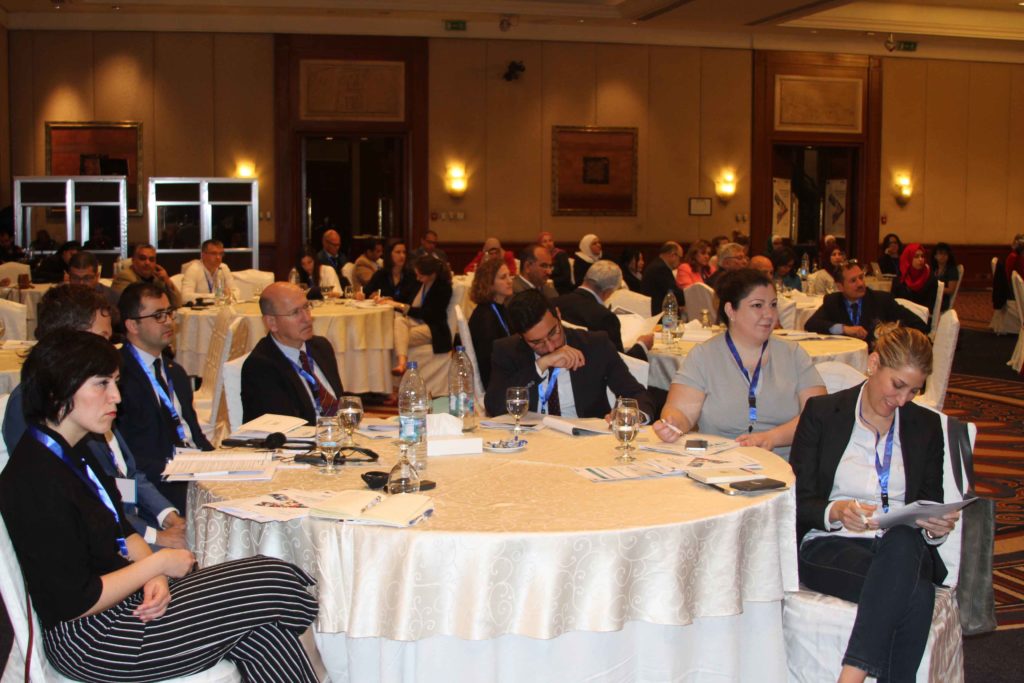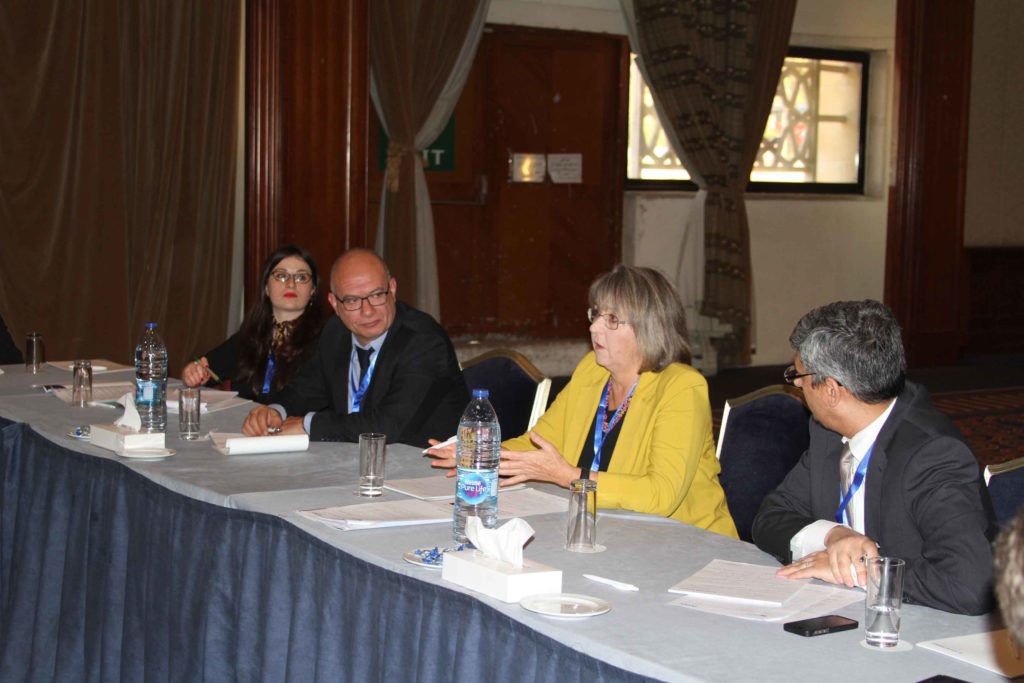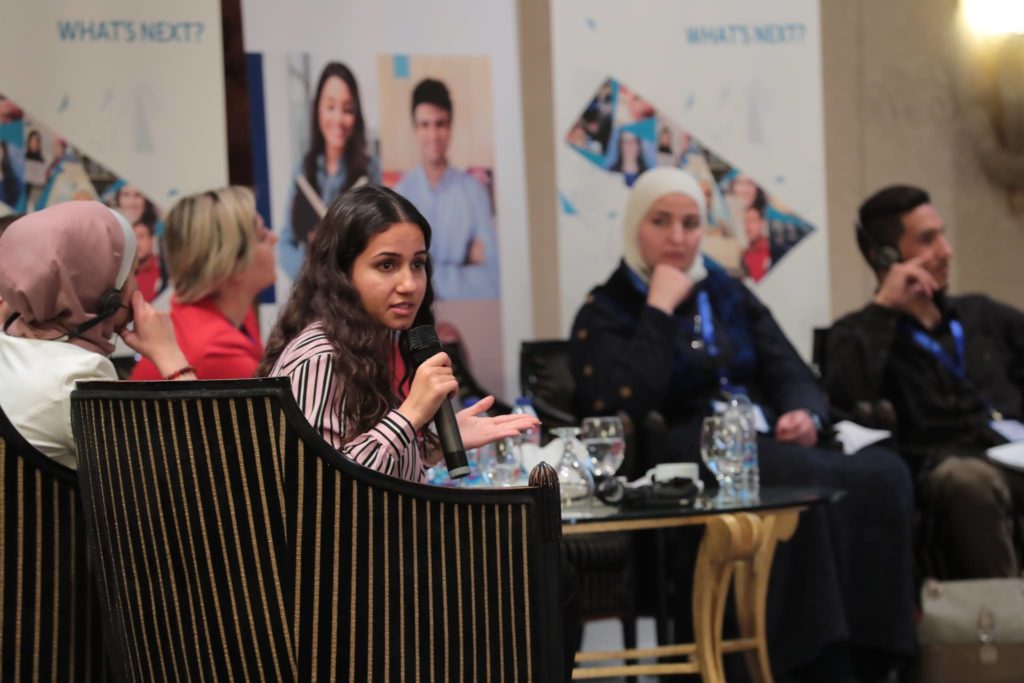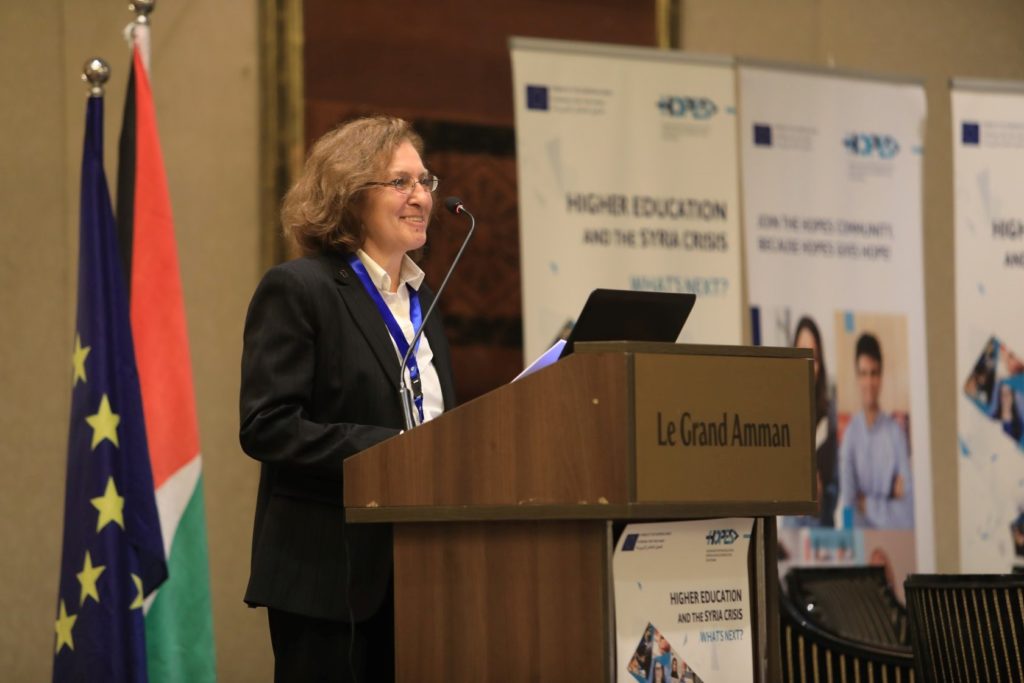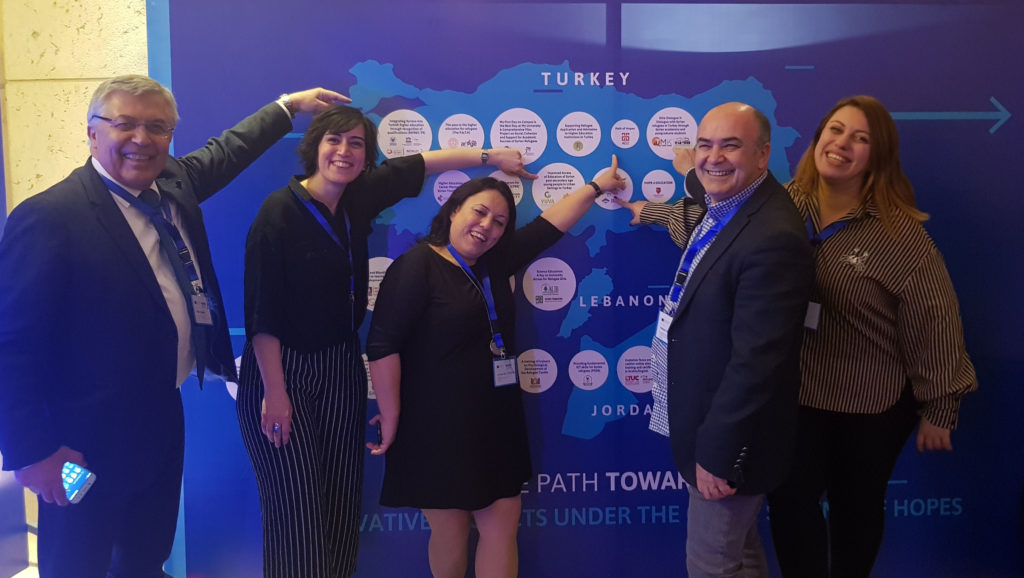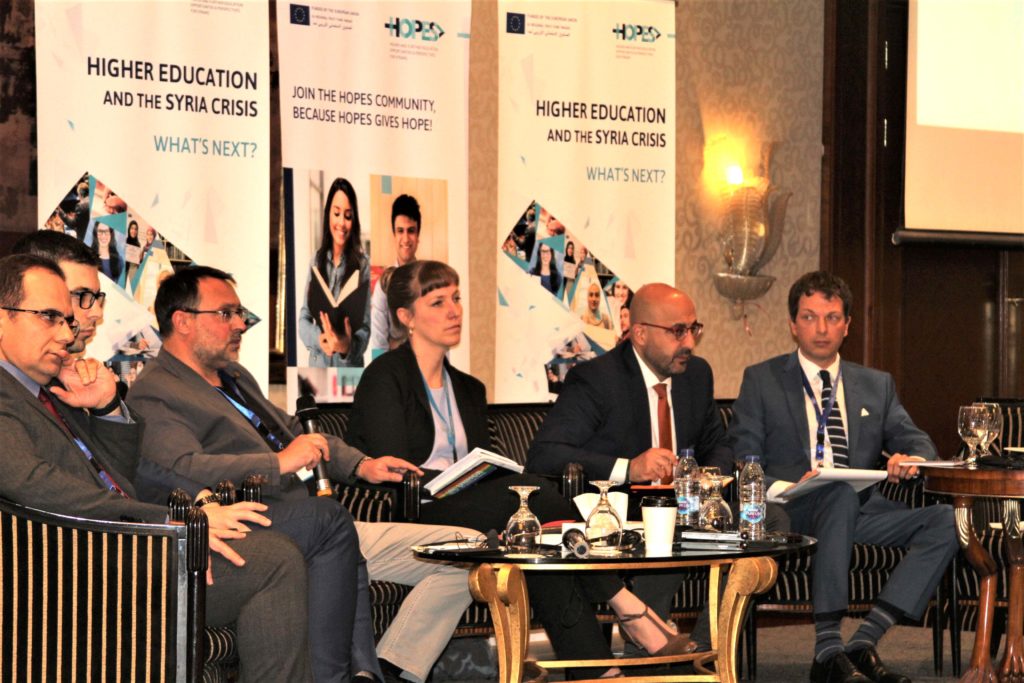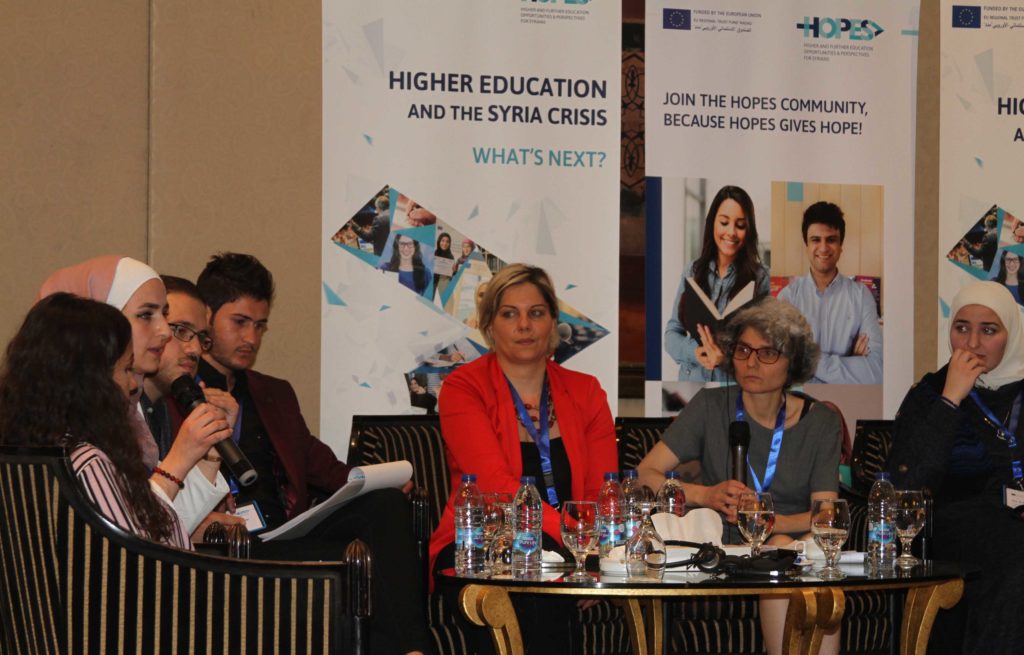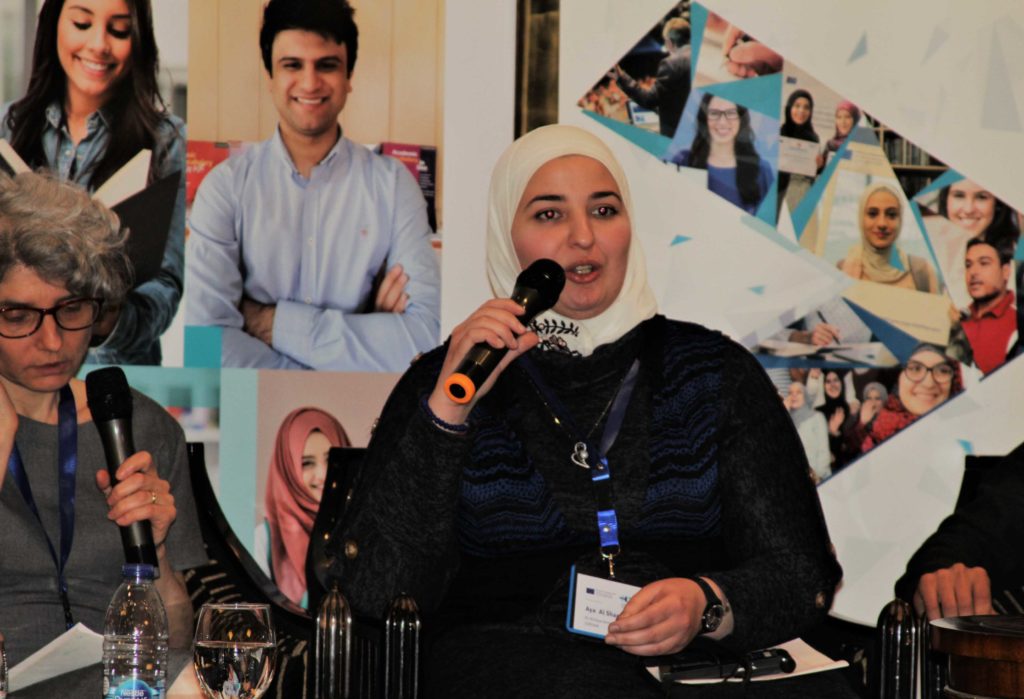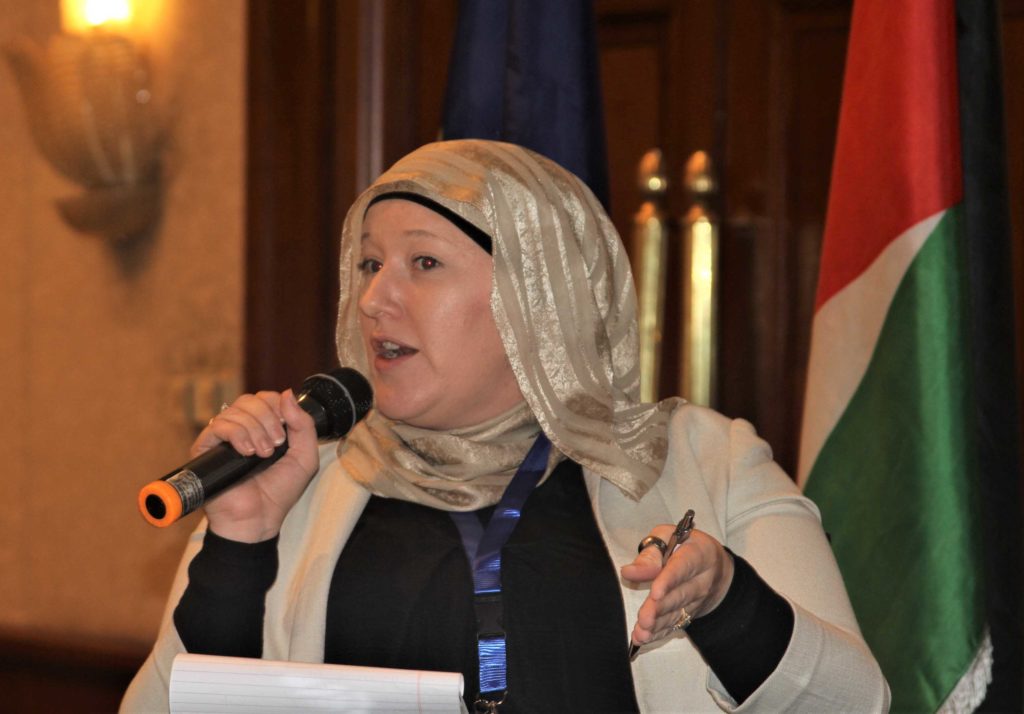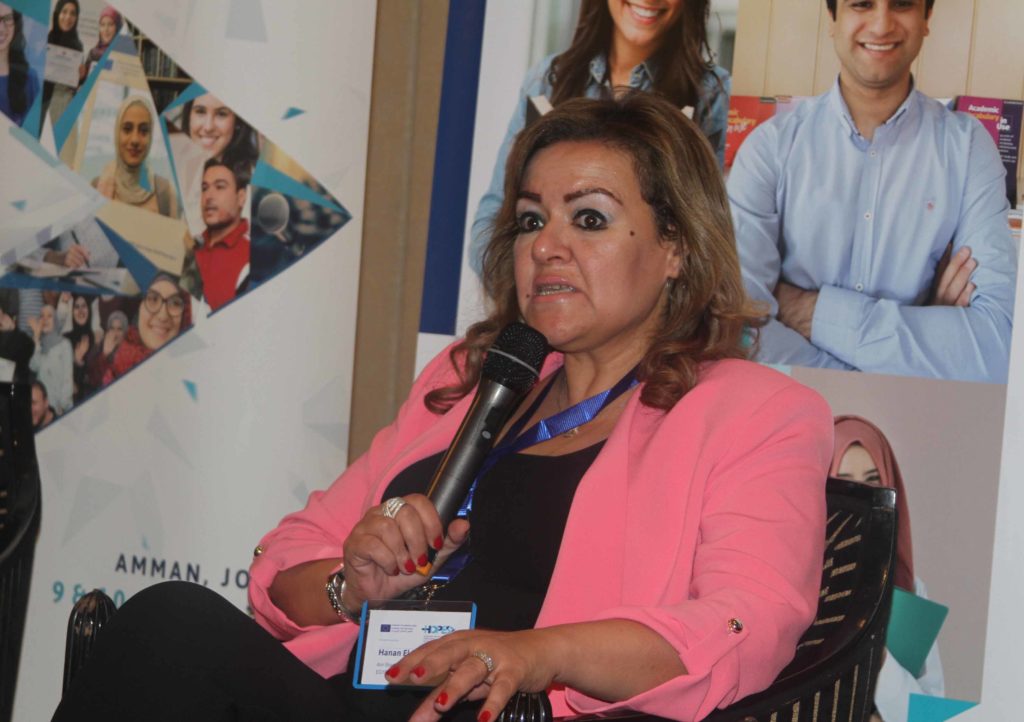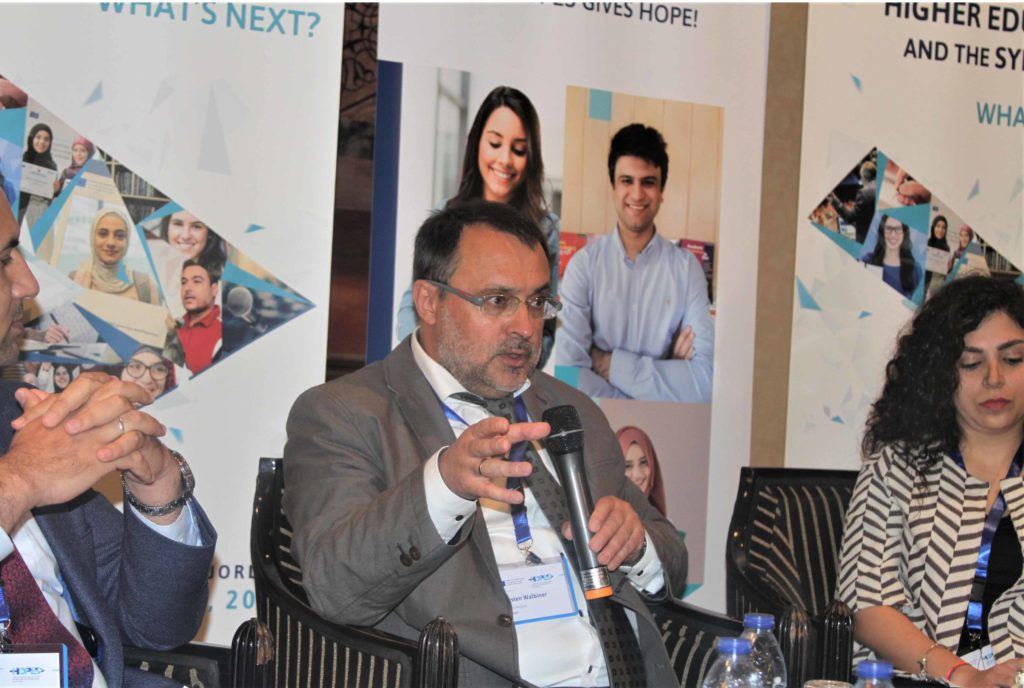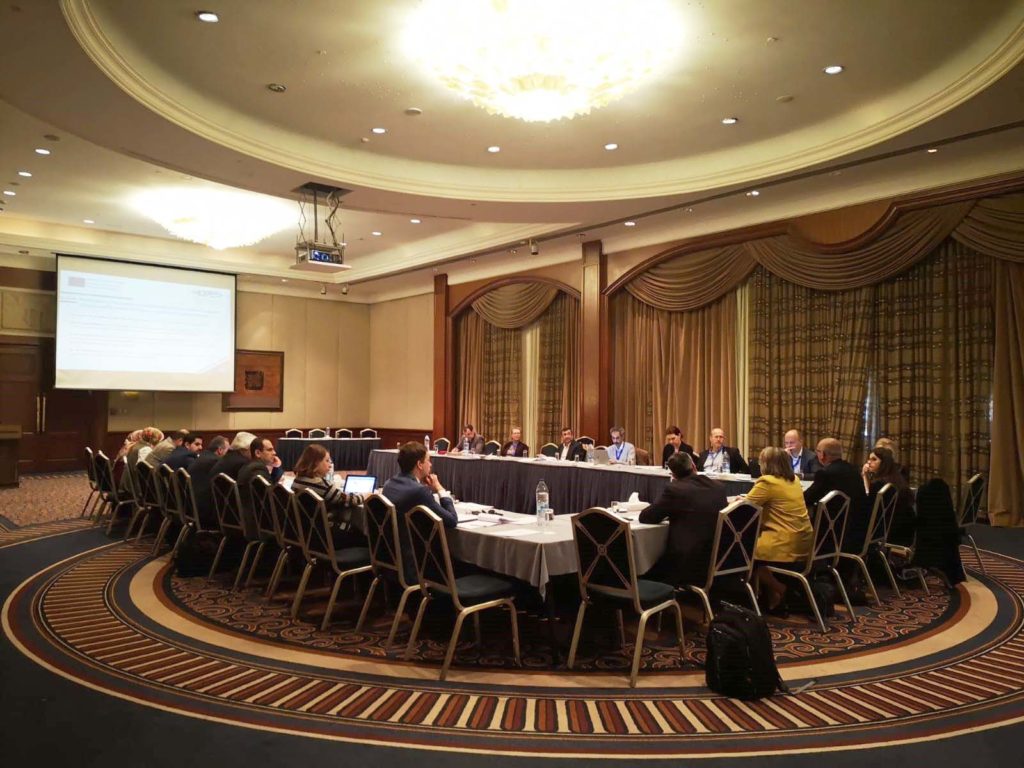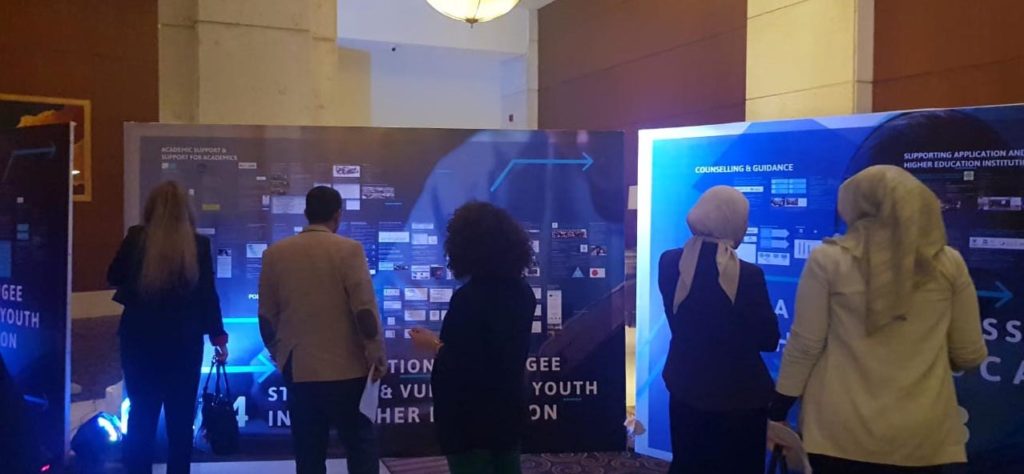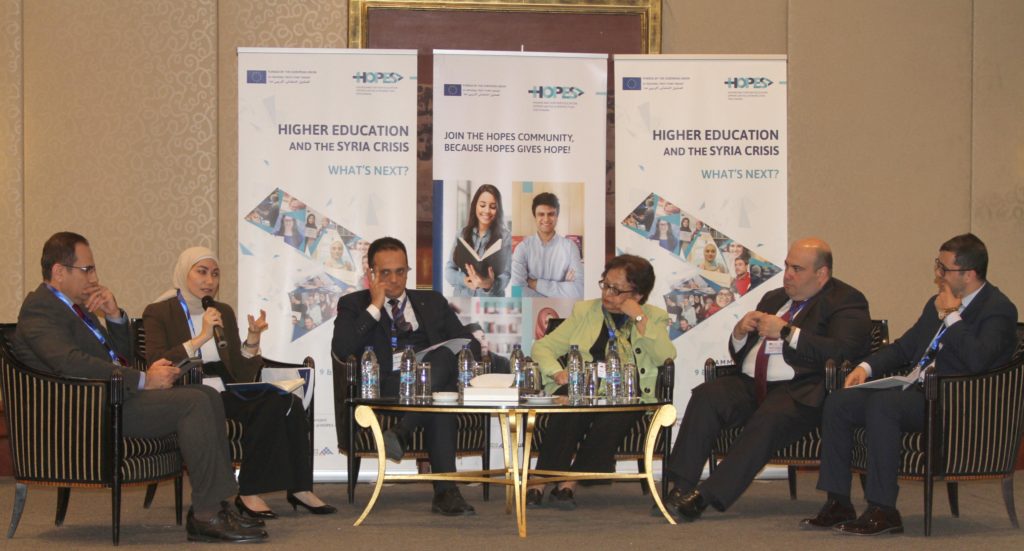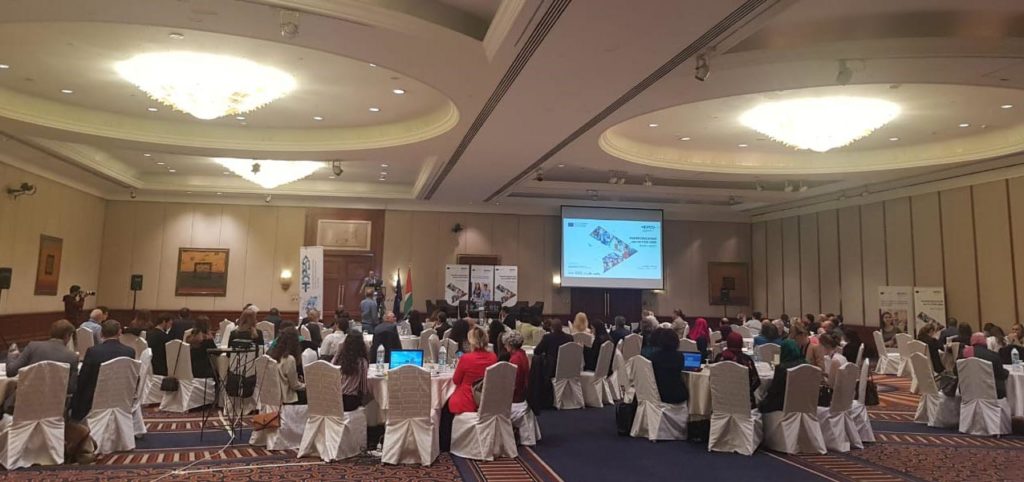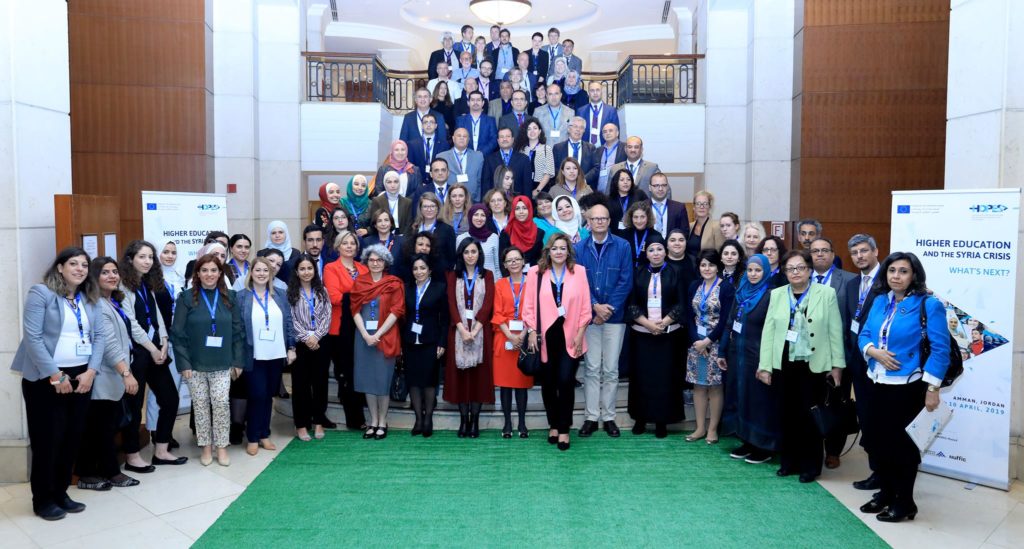CONFERENCE ON HIGHER EDUCATION AND THE SYRIA CRISIS, WHAT’S NEXT?
The HOPES (Higher and Further Education Opportunities and Perspectives for Syrians) project, funded by the European Union’s Regional Trust Fund in response to the Syrian Crisis, the ‘Madad Fund’ and implemented by the German Academic Exchange Service (DAAD), the British Council, Campus France and Nuffic, organised its second regional conference entitled
‘Higher Education and the Syria Crisis: What’s Next?’
on 9–10 April 2019, at le Grand Amman Hotel, Amman, Jordan
More than 118 representatives of ministries, embassies, and higher education institutions, along with students and other key stakeholders, convened from Egypt, the Kurdistan Region of Iraq (KRI), Jordan, Lebanon, Turkey and Europe to discuss the latest achievements in the higher education sector in the context of the Syria crisis and to analyse their impact on students and higher education institutions in the region.
Through a range of addresses and panel discussions, the second HOPES regional conference provided an opportunity to examine the state of the higher education systems in the region and the strategies adopted at a local level to address the Syrian crisis.
Presentations showcased the innovative educational initiatives, utilising blended and online teaching and learning, which have been implemented to improve the learning experience of Syrian refugees as well as of local students.
Syrian and Jordanian HOPES students shared their concerns, ambitions and future plans during the panel “What’s next for me?”, stimulating further discussion on the second day of the conference on students’ language needs and the necessity to find more innovative and realistic solutions for graduate employment in the context of the prevailing situation in the region.
Enabling participants to deepen their understanding of the needs and expectations of the beneficiaries, the conference supported in-depth exploration of how best to enhance the coordination of programmes and to develop innovative, sustainable and viable approaches to meeting the educational needs of students in the region.


